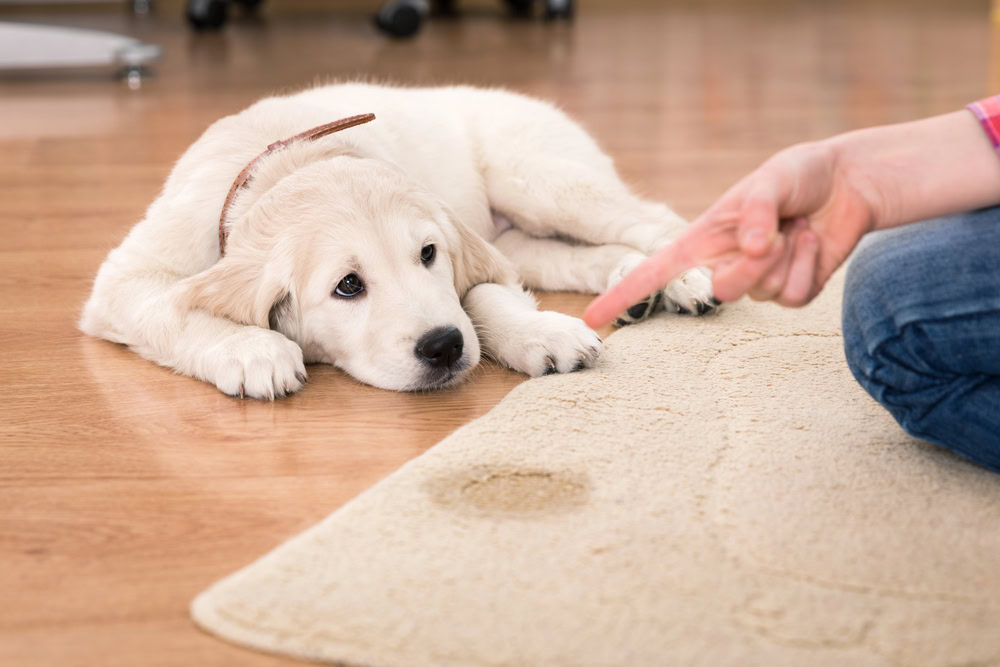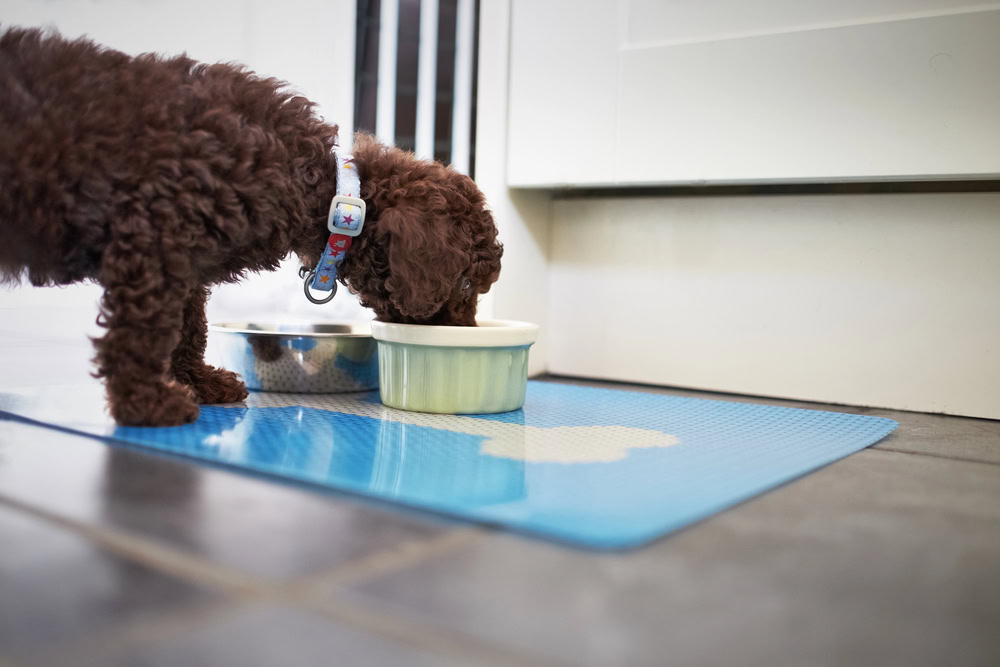You’ve brought a bouncing ball of fur into your home, and now you’re facing one of the most critical periods in your dog’s life. The first year isn’t just about watching your puppy grow; it’s about shaping the adult dog they’ll become through essential training and socialization. While those puppy eyes might make you want to let every mishap slide, the habits your pup develops now will stick with them for years to come. Understanding why these early months matter so much will help you make the most of this fleeting but foundational time.

The first weeks of your puppy’s life lay the foundation for their entire future. During the essential period between 8-16 weeks, your puppy’s brain is highly receptive to learning and forming lasting habits. You’ll want to take advantage of this window, as puppies who miss early training often develop behavioral issues that become harder to correct later.
Start with basic commands like “sit,” “stay,” and “come” while establishing consistent routines for feeding, potty breaks, and playtime. You’ll find that short, engaging training sessions work best to maintain your puppy’s attention. Using positive reinforcement techniques helps promote effective learning and understanding.
Crate training during these early weeks helps prevent separation anxiety and speeds up house training success.
Don’t underestimate the importance of proper handling and mild stress exposure during this period - it actually enhances your puppy’s brain development. If you wait until adolescence at 6 months, you’ll face a much more challenging training experience.
The 4-16 week period is also vital for socialization; expose your puppy to various people, animals, and environments. Remember, early training isn’t just about obedience - it’s building a strong bond with your puppy while ensuring they become a well-adjusted, confident adult dog.
While many puppy owners focus primarily on obedience training, building strong social foundations during the vital 3-12 week period will shape your puppy’s lifelong personality and behavior. During this time, you’ll want to expose your puppy to various experiences in a controlled, positive way. This includes introducing them to different people, environments, textures, and sounds.
To create positive associations, always use treats and praise when exposing your puppy to new situations. You’ll need to keep these experiences gentle and gradual to avoid overwhelming your young companion. Remember that safe settings are essential - avoid public places like dog parks until your puppy’s vaccinations are complete. Virtual sessions can be a helpful alternative for those unable to attend in-person training.
The benefits of proper early socialization are substantial. You’ll develop a more confident, adaptable dog who’s less likely to develop fear-based behaviors or aggression.
Consider enrolling in puppy classes with a professional trainer who can guide you through this vital period and provide ongoing support for any challenges that arise.
Building on your puppy’s social foundations, successful potty training will become your next major milestone as a pet parent.
You’ll need to establish a consistent routine by taking your puppy outside often depending on the age, especially after meals, naps, and playtime. As your puppy ages, you can gradually extend these intervals from 20 to 30 minutes at 8-10 weeks to 45 to 60 minutes at 10-12 weeks. Eventually it will be every 2 to 3 hours for a puppy.
Select a specific outdoor spot for potty breaks and use the same command each time to create a strong association. When your puppy eliminates in the right place, offer immediate praise or treats to reinforce this behavior. Watch for signs like barking, scratching, or restlessness that indicate your puppy needs to go and always go out the same door.
Don’t rush back inside until you’re sure they’re finished.
Your puppy’s crate will be essential for managing potty breaks and preventing accidents. Choose one that’s just large enough for them to stand, turn around, and lie down.
You’ll need to provide overnight bathroom breaks every 3-4 hours for very young puppies. You might want to limit food and water after 6:00 in the evening so they're more able to sleep through the night. Remember that full bladder control typically develops between 12-16 weeks, though this varies by breed and size.
If you notice persistent issues, consult your veterinarian for guidance.
Starting command training early creates a foundation for your puppy’s lifelong success and safety. You’ll want to begin with basic commands like “sit,” “down,” “stay” and “come”when your puppy is around 8 weeks old, gradually progressing to more advanced commands as they develop. Remember that consistency and patience are essential, as each puppy learns at their own pace. Mental and physical stimulation through training helps prevent future behavioral problems.
Your training approach should include:
As your puppy masters basic commands, you can start incorporating more complex combinations and advanced training. Focus on vital safety commands like “come” and impulse control exercises, which will help keep your puppy safe in various situations.
You’ll find that structured training sessions not only improve obedience but also strengthen your bond with your puppy. By maintaining a consistent training schedule throughout their first year, you’re setting up your puppy for success in adapting to different lifestyles and activities while ensuring they retain good behaviors for life.
Understanding your puppy’s sleep patterns is essential during their first year, as they’ll spend up to 20 hours a day sleeping during early development.
Your one-month-old puppy will sleep 19-21 hours daily, primarily nursing between naps. By two months, they’ll maintain about 20 hours of sleep, with minimal changes in their sleep patterns. Setting up comfortable sleeping arrangements is vital for promoting quality rest during this period.
As your puppy reaches three months, they’ll need 15-19 hours of sleep and might start sleeping through the night.
Four-month-old puppies typically establish consistent nighttime sleep patterns, requiring 11-15 hours of rest daily. By six months, they’ll need 15-20 hours of sleep while maintaining their nighttime routine.
To establish healthy sleep habits, create a consistent schedule that includes regular feeding times, playtime, and potty breaks.
Keep their sleep environment calm, quiet, and comfortable. You’ll need to adjust their routine as they grow, decreasing nap frequency from several daily naps at 8-12 weeks to three or fewer after 16 weeks.
Remember to use the “Sleep-Eat-Play” pattern and incorporate brief, focused nighttime potty breaks for younger puppies.
Through proper early intervention, you can prevent many common behavioral issues before they become deeply rooted habits. By establishing clear boundaries and using positive reinforcement during your puppy’s formative months, you’ll set the foundation for a well-behaved adult dog. Supervision, consistent training, and appropriate redirection are key elements in preventing unwanted behaviors.
Start by focusing on these essential preventive measures:
Early socialization plays a vital role in preventing future behavioral problems. Expose your puppy to various people, animals, and environments while they’re young and receptive to new experiences. This exposure helps prevent fear-based aggression and anxiety later in life. Positive encounters with other animals during the critical 12-16 week period can significantly reduce aggressive tendencies in adulthood.
Teaching basic commands like “sit,” “stay,” and “quiet” early on gives you tools to manage potential issues before they develop. Remember that consistency in your training approach builds trust and helps your puppy understand what’s expected of them.
When you combine these preventive strategies with positive reinforcement, you’ll greatly reduce the likelihood of serious behavioral problems developing as your puppy matures.
While establishing good habits at home forms the foundation of puppy training, professional training classes offer unique advantages that complement your efforts.
Professional trainers bring scientifically-based techniques and structured learning environments that can accelerate your puppy’s development. They’ll customize training programs to match your puppy’s personality and address specific behavioral challenges you’re facing at home.
In a professional setting, your puppy will benefit from controlled socialization opportunities, exposing them to various stimuli and other dogs in a safe environment. Mental engagement activities during training sessions help prevent boredom-related behavioral issues.
You’ll also learn proper communication techniques and positive reinforcement methods that strengthen the bond with your puppy. The consistent approach used by certified trainers helps your puppy learn commands more quickly and effectively.
Professional classes prove cost-effective in the long run by preventing destructive behaviors and future issues that could require expensive interventions.
Many training services offer lifetime support, giving you access to expert guidance as new challenges arise.
You’ll save time with efficient training methods while gaining valuable insights into your puppy’s behavior, ensuring a well-adjusted and obedient companion for years to come.

During your puppy’s formative first year, establishing positive habits lays the groundwork for a well-behaved adult dog. The first 14 weeks are especially critical, as your puppy absorbs everything around them and develops behaviors that will last a lifetime.
By starting early and remaining consistent, you’ll create a strong foundation for your puppy’s future success.
Positive reinforcement is a great way to train a young puppy as you are creating good habits. When you reward good behavior immediately with treats and praise, you’re teaching your puppy exactly what you expect from them. This approach builds trust and strengthens your bond while making training enjoyable for both of you.
You’ll find that dedicating time to puppy training in the first year pays lifelong dividends. From those essential early weeks through consistent command training, you’re building more than just good behavior - you’re creating an unshakeable bond with your furry friend. Whether you choose professional classes or in-home training, your investment now means fewer behavioral issues later and a well-adjusted companion who understands their place in your family.